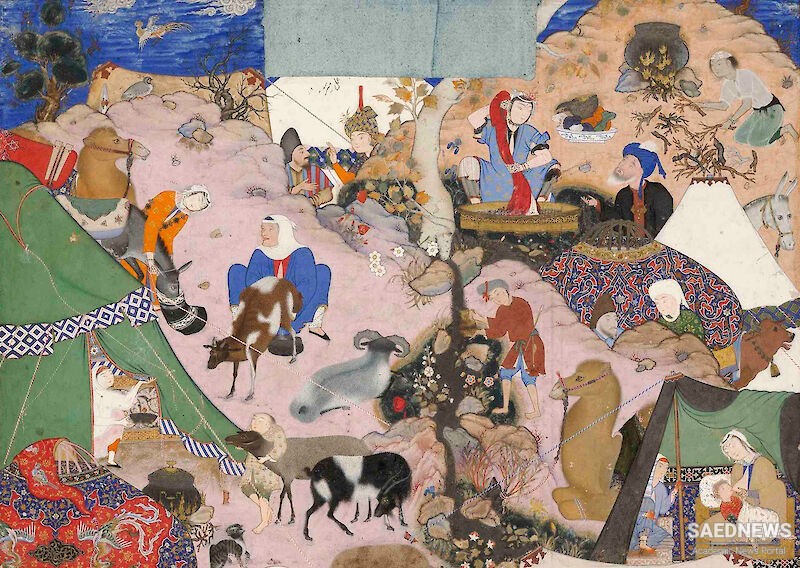A major contributing factor to the Arabization of Persian was the magnitude of Arab settlement in Greater Iran, and presumably the intense interaction and intermarriage between the immigrants with the local populations at both the highest and lowest social levels, and after large numbers of Arab tribes moved into the Fertile Crescent during Sassanian times, Shapur II (r. 309-379) settled some of them in Fars as well as in the hinterland of Bam and Kerman. After Islam, settlement occurred in various waves throughout, and was most extensive in eastern Iran, including Khorasan, Afghanistan, and Central Asia. At its height, the number of Arab immigrants may have totaled 250,000. While these Arabic-speaking populations were ultimately absorbed, except for isolated Central Asian Arabic pockets (eastern I ran, northern Afghanistan, Central Uzbekistan), Arabic continued as the high register literary language during the earlier centuries of New Persian, mainly as the dominant language of science and religion, and may have at least indirectly affected even syntax, particularly through extensive translation activities both from and into Arabic. In contrast, the immigration of Turkic speakers has led to the Turkification of large regions, mainly in Azerbaijan (Azeri Turkic) and less so in Fars (Qashqa'i) and Khorasan (Turkmen). In addition, dynasties of Turkic or Turko-Mongol origin ruled in Iran from the late tenth century to the twentieth century. Linguistically, there has been considerable Iranization of Turkic, but the intense Turko-Iranian symbiosis has also effected grammatical innovations in Persian, including the emergence of the evidential catgegory in the verb system during the nineteenth century.


 Turkish Contribution into the Evolution of Persian
Turkish Contribution into the Evolution of Persian














































